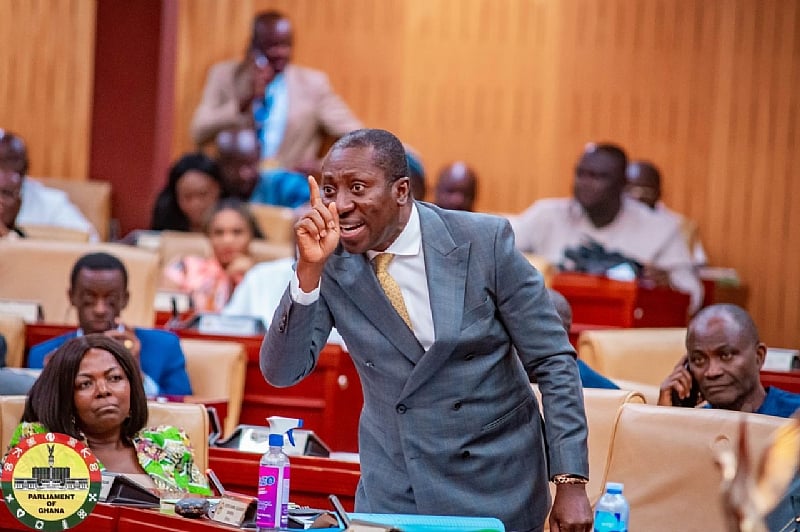Alexander Afenyo-Markin, the Minority Leader in Ghana’s Parliament and Member of Parliament for Effutu, has embarked on a challenging yet crucial journey as the leader of the opposition New Patriotic Party (NPP) in Parliament. He approaches this role with a sense of pragmatic optimism, acknowledging the inherent difficulties while expressing confidence in his ability to navigate the complexities of parliamentary politics and advance the NPP’s agenda. Afenyo-Markin recognizes that his path will not be without obstacles, comparing the challenges to encountering both potholes and smooth asphalt roads along the way. This realistic perspective underscores his understanding of the unpredictable nature of politics and the need for adaptability and resilience.
Central to Afenyo-Markin’s leadership approach is his emphasis on consultation and collaboration. He stresses the importance of engaging with the rank and file of the NPP before making decisions, recognizing the party’s structure as one of “equals.” This commitment to inclusivity reflects a desire to build consensus and ensure that the party’s parliamentary actions are representative of the broader membership. Such a consultative approach is not only crucial for maintaining party unity but also for effectively representing the diverse interests and perspectives within the NPP. In a political landscape often characterized by sharp divisions and power struggles, Afenyo-Markin’s focus on consultation stands out as a crucial element of his leadership style.
Afenyo-Markin also demonstrates a remarkable degree of self-awareness, acknowledging his own fallibility and the potential for mistakes. He readily admits, “I will make mistakes,” recognizing that the “hot seat” of Minority Leader comes with immense pressure and the inevitability of occasional missteps. This humility and willingness to learn from errors are essential qualities for effective leadership, especially in the high-stakes environment of parliamentary politics. He views these potential errors not as setbacks but as learning opportunities, emphasizing the importance of growth and adaptation in the face of challenges. This perspective allows him to approach his role with a sense of resilience and a commitment to continuous improvement.
Furthermore, Afenyo-Markin emphasizes the importance of feedback and constructive criticism in shaping his leadership. He expresses gratitude for “very good friends” who provide him with candid assessments of his performance, commending him when he excels and offering critical feedback when he falls short. This openness to external perspectives demonstrates a willingness to learn and adapt, crucial for navigating the complexities of parliamentary leadership. By actively seeking out and considering diverse viewpoints, Afenyo-Markin demonstrates a commitment to making informed decisions and refining his leadership approach. This willingness to listen and learn is a testament to his commitment to effective governance and his recognition of the value of collaboration.
Afenyo-Markin’s emphasis on consultation, self-awareness, and receptiveness to feedback underscores his commitment to a collaborative and inclusive leadership style. He recognizes that the role of Minority Leader requires not only strategic thinking and political acumen but also the ability to build consensus, learn from mistakes, and adapt to changing circumstances. By embracing these principles, he aims to effectively represent the NPP’s interests in Parliament and contribute to a more productive and collaborative political environment. This approach, grounded in humility and a commitment to continuous improvement, positions him to navigate the challenges of his role with resilience and effectiveness.
In essence, Afenyo-Markin’s approach to leadership as Minority Leader is characterized by pragmatic optimism, a commitment to consultation, self-awareness, and a willingness to learn and adapt. He views the challenges ahead as opportunities for growth and remains confident in his ability to navigate the complexities of parliamentary politics. His emphasis on collaboration and inclusivity, combined with his humility and openness to feedback, positions him to effectively represent the NPP’s interests and contribute to a more constructive and collaborative political landscape in Ghana. His journey as Minority Leader is undoubtedly a demanding one, but his approach suggests a commitment to navigating the challenges with resilience and a focus on serving the best interests of his party and the nation.














